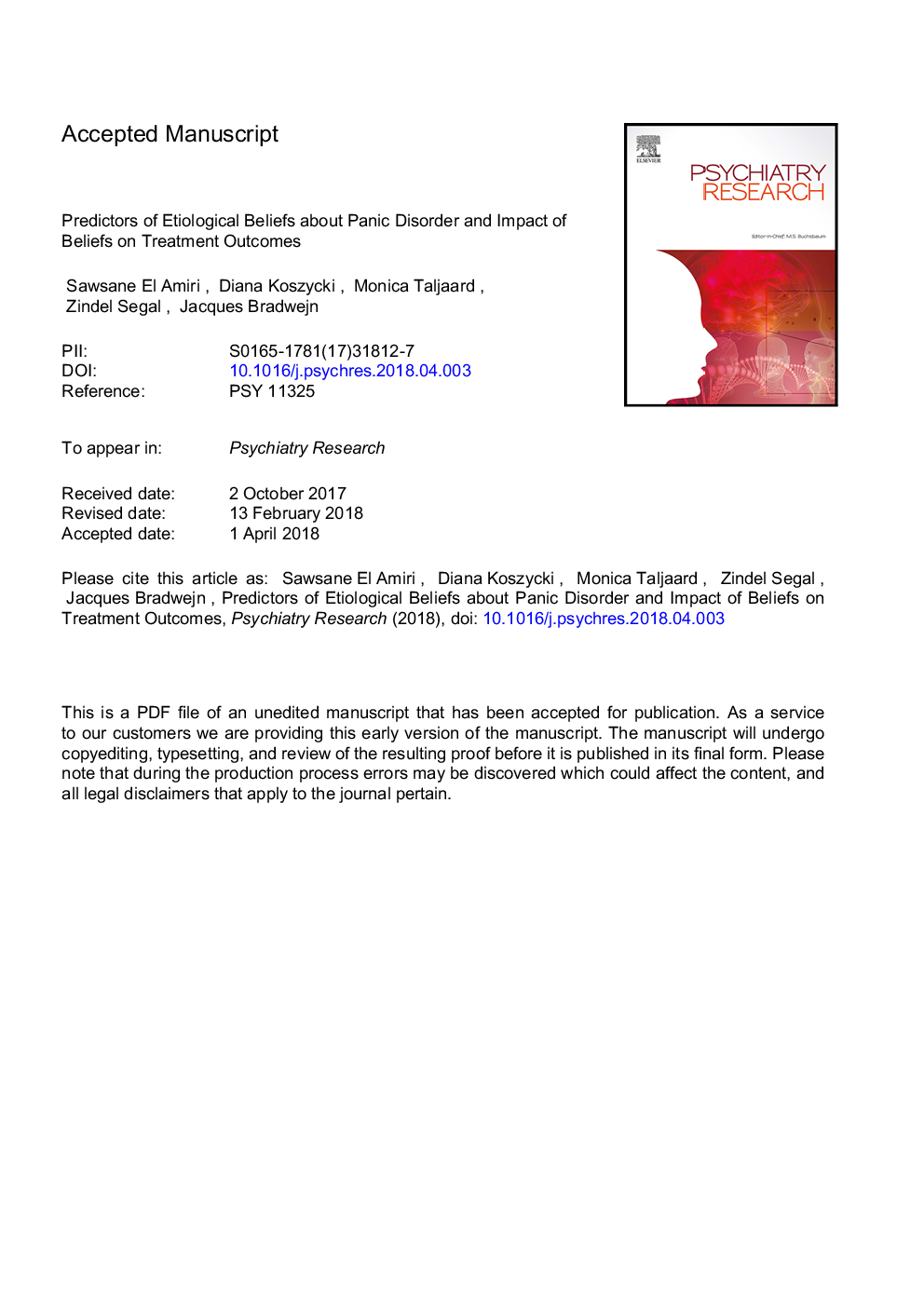| Article ID | Journal | Published Year | Pages | File Type |
|---|---|---|---|---|
| 6811513 | Psychiatry Research | 2018 | 32 Pages |
Abstract
Little is known about the beliefs people with panic disorder (PD) have about their illness and how these beliefs might influence treatment outcome. This study explored demographic and clinical predictors of etiological beliefs about PD and the impact these beliefs have on treatment response. The sample included 251 outpatients with PD who participated in a randomized placebo-controlled trial of treatments for PD. Regression analyses revealed that sex, duration of PD and family history of psychiatric illnesses predicted biological etiological beliefs, previous history of psychotherapy predicted environmental etiological beliefs, and age, impaired functioning, and measures of “fear of fear” predicted multiple etiological beliefs about PD. Etiological beliefs predicted more severe symptoms at 12 weeks post-treatment, irrespective of the type of treatment received, but had no effect on attrition, treatment adherence or treatment-related adverse effects This study contributes to the sparse literature on etiological beliefs about PD. Results are preliminary and further research is needed to understand more fully the factors that shape etiological beliefs about PD, whether these beliefs change over the course of illness, and the impact etiological beliefs have on treatment outcome.
Keywords
Related Topics
Life Sciences
Neuroscience
Biological Psychiatry
Authors
Sawsane El Amiri, Diana Koszycki, Monica Taljaard, Zindel Segal, Jacques Bradwejn,
